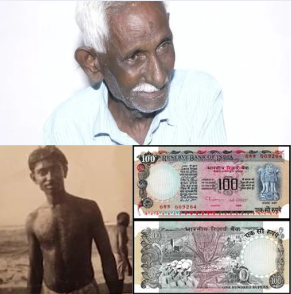A hundred criminals to go free than for one innocent to be punished
– Atoofa Nasiha
For nearly four decades, Jageshwar Prasad Awadhiya lived with the mark of a bribery charge that was never proven. His story is not just about one man’s struggle. It is about the slow grind of India’s justice system, where delays can destroy lives, and where acquittal after decades often feels like no justice at all.
A 39-Year Legal Battle Over ₹100
In 1986, Awadhiya, then a bill assistant with the Madhya Pradesh State Road Transport Corporation in Raipur, was accused of demanding ₹100 to clear an arrears bill. This led to suspension, transfers, pay cuts, and eventually denial of pension after retirement. His family faced humiliation and financial hardship.
In 2004, almost two decades after the initial complaint, a lower court convicted him under the Prevention of Corruption Act and sentenced him to one year in prison along with a fine. He challenged the verdict, but the legal process dragged on.
Finally, in September 2025, the Chhattisgarh High Court acquitted him, ruling that the prosecution had failed to prove the essential elements of demand and acceptance of illegal gratification. By then, Awadhiya was 83 years old.
Justice Delayed is Justice Denied
The principle that justice delayed is justice denied comes alive in this case. For 39 years, Awadhiya lived under the shadow of being labelled corrupt. Even though he is now acquitted, no court can restore the years he lost, the promotions denied, the pension withheld, or the dignity snatched away.
Courts often say that it is better for “a hundred criminals to go free than for one innocent to be punished.” This principle is meant to protect the innocent from wrongful suffering. Yet in practice, delays in trials and appeals punish the innocent without conviction. They serve the same harm as a wrongful sentence.
A Larger Problem in India’s Justice System
Awadhiya’s ordeal is not an isolated case. Thousands of undertrials languish in jails for years without conviction. Corruption cases, property disputes, and service-related matters can drag on for decades. Retired judges have repeatedly warned that procedural delays, shortage of judges, and inefficiency in investigation leave citizens vulnerable to endless harassment.
In corruption-related cases, especially, the trial process is often slow, and evidence is poorly handled. Many innocent officials spend their lives proving their integrity instead of serving their duties.
What Needs to Change
This case highlights urgent reforms needed in India’s legal system:
- Time-bound trials: Especially in cases involving small amounts, courts must resolve matters within fixed deadlines.
- Independent scrutiny before prosecution: Not all trap cases are genuine; sometimes they are fueled by personal enmity or false complaints.
- Accountability for delay: When cases stretch over decades, courts and investigating agencies must be held accountable for the harm caused.
- Restitution for the acquitted: Those proven innocent after long battles deserve compensation for the years of loss and stigma.
A Life Stolen by Delay
For Jageshwar Prasad Awadhiya, the acquittal is a technical victory but not true justice. The system robbed him of dignity, income, and peace. His story is a reminder that unless justice is delivered swiftly, it becomes meaningless.
A nation that dreams of fairness must ask itself: how many more lives will be crushed under the burden of delays? Until reforms are made, the principle that “justice delayed is justice denied” will continue to haunt India’s courts.
A Great Toll on His Family
After the arrest, Awadhiya was suspended from his job (from 1988 to 1994), transferred to Rewa, and his salary was cut in half. This created a large financial strain on his household. (LiveMint)
His children’s education suffered greatly. They could not afford to pay school fees regularly. As a result, some children dropped out or had interruptions in their studies. (India Today)
His wife’s health deteriorated under the stress of the long legal struggle and uncertainty. She passed away before the case was resolved. (LiveMint)
The family also lost social standing. Neighbours and community members distanced themselves, treating them with suspicion. Awadhiya’s family was stigmatised, as though they were guilty before any proof. (Webdunia)
After his retirement, Awadhiya was denied his pension and other benefits. To survive, he worked odd jobs and even served as a watchman. (Webdunia)
One of his children, his youngest son Neeraj, faced delays in marriage and securing a job, in part because the family’s reputation was damaged over the years. (India Today)
If an innocent man can lose 39 years of his life for a false charge of ₹100, what does that say about the justice system of the world’s largest democracy?




